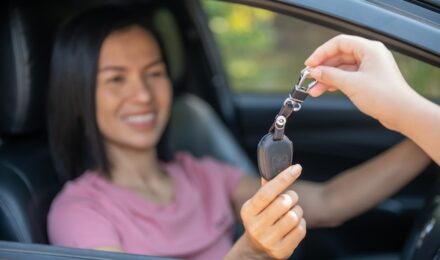The term smartphone is to mobile phones equipped with advanced software, hardware, connectivity, and implementation to facilitate electronic transactions and data communications. Smartphones have been around since the late ‘90s. It took a little longer for them to catch on than most other breakthrough technologies, but they’ve grown exponentially in the years since. Now that we’re living in a world where more people are walking around with smartphones in their pockets than the total population of any country, it makes sense to address one of their myriad fascinating effects: how phones help make our cities smarter.
Smartphones are by no means the only way we’ve converted our cities into more intelligent, interactive spaces, but they’re one of our most familiar methods. They’re involved in everything from noise pollution to global tracking systems and data gathering to urban planning. They’re even considered a part of the new era of high-tech cities designed from scratch to be more forward-thinking and efficient.
How smartphones affect the way we interact
There are obvious ways phones make cities more intelligent, such as allowing us to access information remotely. We can look up a menu in advance at a restaurant or find directions to a destination before we arrive there. But how are smartphones also changing how we interact with the world?
For one thing, they make it easier to help others. For example, if you see someone having car trouble on the side of the road, you can use your phone to call them a tow truck or a taxi. If you’re looking for something more in-depth, you can use a crowdsourcing app like Uber and Lyft to find a ride nearby and get around while out of town. These apps are run on a digital map, and they even use GPS to tell you exactly how far away the cars are.
Some cities have citizen apps that let residents report problems and keep track of projects in their neighborhoods. Even something as important as traffic can be monitored with a smartphone app; if you see traffic getting heavy around a specific part of town, you might take another route and save time.
Phones are also increasingly being used for payment. In stores, many people use smartphones instead of cash, debit cards, and credit cards. They can quickly process transactions digitally and safely. Just a few swipes through your screen is all it takes to buy something at a store. It’s even possible to receive payments digitally; you can look into how to accept payments through apps like Square or PayPal if your business takes credit card payments online.
Important features
Smartphones can be used in ways that are still being developed and discovered. But they’ve already made a big difference in how we live, work, and play. Some of their most basic and essential features include:
Access to the internet and apps
One of the core features of smartphones is the ability to access the internet. People can surf their phones with a data connection, check social media, and play games. They can also use apps specific to their interests, like a travel app that shows you where to eat in a city and a fitness app that keeps track of how many steps you walk each day.
Camera capabilities
Of course, accessing the internet also means you can find and download whatever app you want. But there’s another reason phones are so smart: cameras. Many people use their phones to take pictures, which they share on social media and sometimes even email or text friends. Smartphones allow people to save those memories in more ways than ever before.
GPS services, including maps and directions services
Search engines like Google and even Uber use a global positioning system (GPS) to tell you how far away you are from a destination. Most maps these days are even built with street views so you can almost feel like you’re walking down the street rather than just looking at it on a screen. And if you ever get lost, GPS services can be invaluable. You can use your phone’s GPS to find the nearest coffee shop or restaurant.
Music options like iTunes and streaming
For many people, phones are their primary music player. Some use it to listen to music even when there’s no connection to the internet, but many others download and store their favorite songs and playlists. People also stream music from services like Spotify, Pandora, and YouTube.
And as technology in general evolves and continues to improve, smartphones will likely be used for more things than we can imagine.
Types of smartphones
Nowadays, smartphones are of many different types. Before we get into the details, let’s first see which smartphone types are in use and their main features.
Primary Smartphones
This is the type of smartphone you will mostly find on the market today. It has a physical keyboard and a touch screen. It usually comes with a data plan (or tethering capability), a camera, and a music player preinstalled.
Secondary Smartphones
The second type of smartphone is an improved version of the smartphone above. It usually has a built-in touchscreen, a data plan (or tethering capability), a camera, and a preinstalled music player.
Pocket Smartphones
Also known as “first-generation smartphones” or “feature phones,” they only come with a physical keyboard and a touch screen, so all other features are added by software upgrades, like access to the internet.
Advantages of using smartphones
Smartphones allow us to do many things more efficiently and faster than ever, making our lives more enjoyable. The most obvious advantage is the convenience of having everything we need at one point in time. Who wants to pack up a whole suitcase to head out for any short trip? It’s much easier to grab a few essentials in one place.
Smartphones allow us to access different kinds of information and entertainment at will. You can choose any activity you want to do and get all of the information you need right on your phone. It’s like an encyclopedia that’s only a click away!
The data that we store on our phones is also essential. A good example would be our contacts list, calendar (if you use it), notes, etc. Not to mention that you can keep all of your passwords on your phone so they aren’t all over the place.
The term smartphone is to mobile phones equipped with advanced software, hardware, connectivity, and implementation to facilitate electronic transactions and data communications. Smartphones have been around since the late ‘90s. It took a little longer for them to catch on than most other breakthrough technologies, but they’ve grown exponentially in the years since. Now that we’re living in a world where more people are walking around with smartphones in their pockets than the total population of any country, it makes sense to address one of their myriad fascinating effects: how phones help make our cities smarter.
Smartphones are by no means the only way we’ve converted our cities into more intelligent, interactive spaces, but they’re one of our most familiar methods. They’re involved in everything from noise pollution to global tracking systems and data gathering to urban planning. They’re even considered a part of the new era of high-tech cities designed from scratch to be more forward-thinking and efficient.
How smartphones affect the way we interact
There are obvious ways phones make cities more intelligent, such as allowing us to access information remotely. We can look up a menu in advance at a restaurant or find directions to a destination before we arrive there. But how are smartphones also changing how we interact with the world?
For one thing, they make it easier to help others. For example, if you see someone having car trouble on the side of the road, you can use your phone to call them a tow truck or a taxi. If you’re looking for something more in-depth, you can use a crowdsourcing app like Uber and Lyft to find a ride nearby and get around while out of town. These apps are run on a digital map, and they even use GPS to tell you exactly how far away the cars are.
Some cities have citizen apps that let residents report problems and keep track of projects in their neighborhoods. Even something as important as traffic can be monitored with a smartphone app; if you see traffic getting heavy around a specific part of town, you might take another route and save time.
Phones are also increasingly being used for payment. In stores, many people use smartphones instead of cash, debit cards, and credit cards. They can quickly process transactions digitally and safely. Just a few swipes through your screen is all it takes to buy something at a store. It’s even possible to receive payments digitally; you can look into how to accept payments through apps like Square or PayPal if your business takes credit card payments online.
Important features
Smartphones can be used in ways that are still being developed and discovered. But they’ve already made a big difference in how we live, work, and play. Some of their most basic and essential features include:
Access to the internet and apps
One of the core features of smartphones is the ability to access the internet. People can surf their phones with a data connection, check social media, and play games. They can also use apps specific to their interests, like a travel app that shows you where to eat in a city and a fitness app that keeps track of how many steps you walk each day.
Camera capabilities
Of course, accessing the internet also means you can find and download whatever app you want. But there’s another reason phones are so smart: cameras. Many people use their phones to take pictures, which they share on social media and sometimes even email or text friends. Smartphones allow people to save those memories in more ways than ever before.
GPS services, including maps and directions services
Search engines like Google and even Uber use a global positioning system (GPS) to tell you how far away you are from a destination. Most maps these days are even built with street views so you can almost feel like you’re walking down the street rather than just looking at it on a screen. And if you ever get lost, GPS services can be invaluable. You can use your phone’s GPS to find the nearest coffee shop or restaurant.
Music options like iTunes and streaming
For many people, phones are their primary music player. Some use it to listen to music even when there’s no connection to the internet, but many others download and store their favorite songs and playlists. People also stream music from services like Spotify, Pandora, and YouTube.
And as technology in general evolves and continues to improve, smartphones will likely be used for more things than we can imagine.
Types of smartphones
Nowadays, smartphones are of many different types. Before we get into the details, let’s first see which smartphone types are in use and their main features.
Primary Smartphones
This is the type of smartphone you will mostly find on the market today. It has a physical keyboard and a touch screen. It usually comes with a data plan (or tethering capability), a camera, and a music player preinstalled.
Secondary Smartphones
The second type of smartphone is an improved version of the smartphone above. It usually has a built-in touchscreen, a data plan (or tethering capability), a camera, and a preinstalled music player.
Pocket Smartphones
Also known as “first-generation smartphones” or “feature phones,” they only come with a physical keyboard and a touch screen, so all other features are added by software upgrades, like access to the internet.
Advantages of using smartphones
Smartphones allow us to do many things more efficiently and faster than ever, making our lives more enjoyable. The most obvious advantage is the convenience of having everything we need at one point in time. Who wants to pack up a whole suitcase to head out for any short trip? It’s much easier to grab a few essentials in one place.
Smartphones allow us to access different kinds of information and entertainment at will. You can choose any activity you want to do and get all of the information you need right on your phone. It’s like an encyclopedia that’s only a click away!
The data that we store on our phones is also essential. A good example would be our contacts list, calendar (if you use it), notes, etc. Not to mention that you can keep all of your passwords on your phone so they aren’t all over the place.



